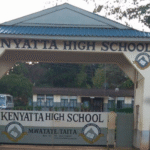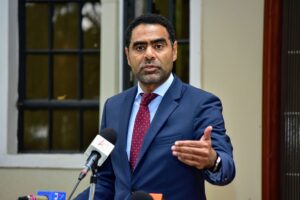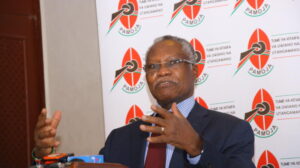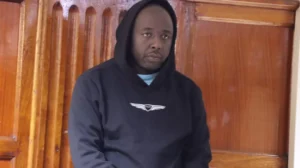Diamond Trust Bank has found itself in the middle of a serious storm following growing claims of internal fraud disguised as loan restructuring. What began as scattered reports has now become a full-scale scandal, with allegations that the bank manipulated client information without consent.
Many Kenyans who trusted DTB for secure financial services now feel betrayed, saying the bank’s actions have not only affected them individually but also damaged public trust in the entire banking system.
At the heart of the issue are reports that DTB used false loan adjustments and corporate reorganizations to conceal fraudulent activity. In one of the most notable rulings, Justice Mabeya of the Kisumu High Court highlighted how the bank, together with lawyer Mohammed Madhani, structured transactions in a way that helped them evade stamp duties and other legal payments.
The ruling described the moves as deliberate attempts to cheat the system, depriving the country of much-needed revenue meant for essential public services. Such actions have made many question how much oversight the Central Bank of Kenya exercises over commercial banks when these schemes can go on for so long unnoticed.
For ordinary customers, the impact has been deeply personal. Some have discovered that their loan details were changed without their knowledge, making them pay more than they originally agreed to or find themselves in debt situations they never signed up for.
Altering client data without consent is not just unethical it is an act that can destroy livelihoods and businesses. Many now accuse DTB of what they call economic exploitation, where the bank benefited at the expense of clients’ financial well-being.
These manipulations have reportedly been going on under the pretext of restructuring loans, with fake audits covering up what was actually organized fraud.Public anger has grown rapidly, especially online, where Kenyans have been using the hashtag #DTBBankScandal to share stories and demand justice.
Some users have accused the bank of operating more like a private cartel than a public financial institution, claiming it has normalized corrupt practices through its management and legal teams.
The outrage reflects a deeper frustration with how powerful institutions often get away with breaking the law while ordinary citizens are punished for much less.
There are now growing calls for stricter laws to protect customers and hold banking executives accountable. Many are demanding criminal charges against those involved rather than quiet settlements or minor fines.
The Central Bank of Kenya is being urged to impose tougher penalties, including multi-million-shilling fines, and to strengthen data protection rules to stop future manipulation. Independent audits have also been proposed to expose the extent of the problem and restore transparency in how banks handle customer information.
The scandal has also reignited a national debate about ethics in the financial sector. In a country where many depend on loans to start businesses or buy homes, losing trust in banks can have serious effects on the economy.
People are beginning to question whether their savings are truly safe, and that uncertainty could lead to mass withdrawals and instability if not addressed quickly.
The image of protesters gathering outside DTB branches demanding answers captures the seriousness of the issue.
Behind the legal jargon and financial statements are ordinary Kenyans families, workers, and entrepreneurs whose futures have been shaken by a system that was supposed to protect them.
For Kenya to move forward, accountability must take center stage. Regulators, the judiciary, and the public must all ensure that what happened at DTB never happens again.
If those responsible are held to account, it could mark the beginning of meaningful reform and the rebuilding of trust between banks and the people they serve.





















Add Comment